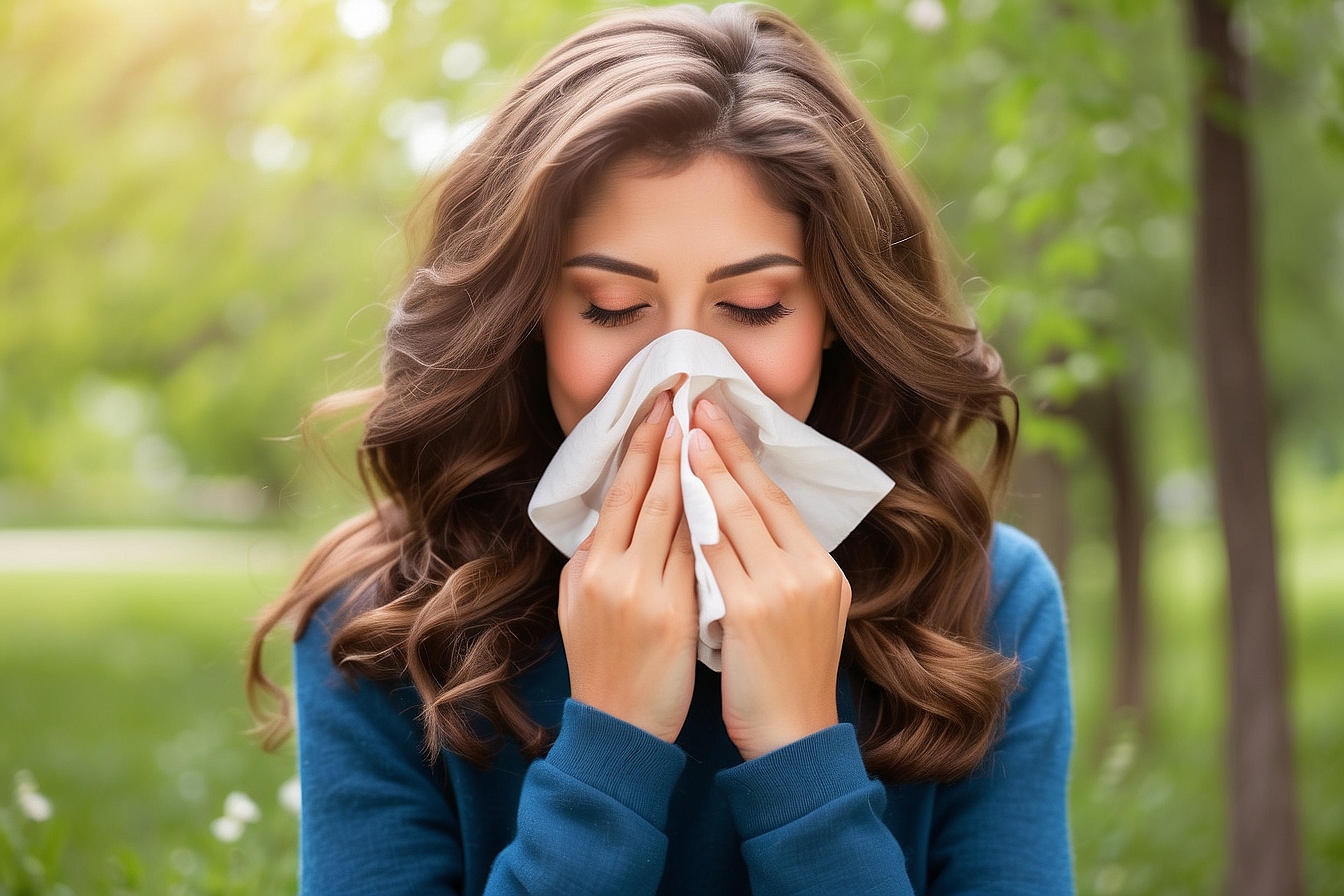Amid the hustle and bustle of city life, locating a serene nook to relax and savour some fresh air can often seem like a quest for hidden treasure. We’ve all experienced the tiresome trawl through countless green dots on our screens, in search of that idyllic park retreat.
But did you realise that urban parks aren’t merely convenient spots for an al fresco lunch? Indeed, these verdant enclaves are essential for our health and wellbeing. Join us as we embark on a journey to uncover the profound influence these pockets of tranquillity have on the lives of urban residents.
Are you prepared to step into an enclave where calmness intertwines with vitality?.
Key Takeaways
- Urban parks encourage physical health by offering spaces for exercise like walking and cycling, which help prevent illnesses such as obesity and type 2 diabetes.
- Spending time in green spaces can lower stress and anxiety levels, improve mood, and enhance mental well-being through activities like yoga or simply relaxing in nature.
- Parks are important social venues that foster community connections, providing a place for people to meet, which is good for emotional support and overall happiness.
- Addressing equity issues by improving access to parks in underserved areas ensures all community members can enjoy the benefits of green spaces for their health.
- By supporting both mental and physical health, urban parks play a critical role in combating chronic diseases and promoting healthier lifestyles among city dwellers.
Understanding Wellbeing: A Comprehensive Measure of Health
Wellbeing goes beyond just being free from illness; it encompasses physical, mental, and social health dimensions. In our bustling city life, we often overlook that true wellness means more than not feeling sick—it’s about thriving in our environments.
For us to be at our best, a balance of good nutrition, regular physical activity, strong social connections and a clean environment is crucial.
We see wellbeing as an expansive concept which includes the joy one finds in daily activities like walking through a park or the peace felt while sitting beside a water fountain. It’s crucial for enhancing environmental quality and fostering deeper connections within our communities.
This comprehensive approach recognises how interconnected our lives are with the green spaces around us and underscores why we must safeguard these areas for community health.
The Impact of Urban Parks on Wellbeing
Urban parks play a crucial role in promoting urban wellbeing, providing physical health benefits through opportunities for exercise and outdoor activities, as well as mental health benefits by offering space for relaxation and stress relief.
Additionally, they also address equity issues by ensuring that all members of the community have access to these vital green spaces.
Physical health benefits
Urban parks provide numerous physical health benefits for city dwellers. They offer opportunities to engage in active pursuits and fitness, such as walking, jogging, cycling, and team sports. These activities help to reduce the risk of obesity and related illnesses such as type 2 diabetes and hypertension. Additionally, spending time in urban parks encourages people to stay physically active, which is crucial for maintaining a healthy weight and preventing chronic health conditions.
- Urban parks promote physical activity through various amenities like walking paths, sports courts, and playgrounds. This facilitates regular exercise that contributes to overall fitness.
- Engaging in outdoor activities in public green spaces boosts cardiovascular health by enhancing circulation and strengthening the heart muscle.
- Regular participation in recreational activities at urban parks can help improve muscular strength, endurance, and flexibility.
- The exposure to natural elements and fresh air in urban parks supports respiratory health by reducing indoor air pollution-related risks.
- City parks also provide spaces for group exercises and fitness classes that foster social connections while promoting physical well-being.
Mental health benefits
After discussing the physical health benefits of urban parks, it’s important to highlight the significant impact of these green spaces on mental well-being.
- Decreased Stress Levels: The tranquility and natural surroundings of urban parks provide a calming environment, reducing stress and anxiety levels.
- Enhanced Emotional Well-being: Interacting with nature in parks has been linked to improved mood, increased happiness, and a sense of overall emotional well-being.
- Social Connection and Support: Parks serve as gathering places for social interaction, fostering a sense of community and connection which contributes to positive mental health.
- Cognitive Restoration: Time spent in green spaces can lead to improved concentration, enhanced creativity, and reduced mental fatigue.
Equity issues
Equity issues arise when not all urban communities have equal access to the benefits of public parks. Disparities in park resources and amenities can lead to unequal opportunities for physical activity, relaxation, and social interaction.
As environmentally conscious individuals, it’s crucial for us to advocate for fair distribution of green spaces and recreational facilities within urban areas, ensuring that everyone has the chance to enjoy the health benefits that parks provide.
In our efforts to support conservation and environmental wellbeing, we must address the inequities in park accessibility by promoting policies that prioritise underserved communities.
Leveraging Parks for Community Health
Parks provide access to physical activity and support mental and emotional well-being, playing a crucial role in promoting urban health. To delve deeper into the impact of parks on community health, read more about their benefits for physical and mental well-being.
Access to physical activity
Parks provide opportunities for physical activity, promoting a healthy lifestyle. They offer spaces for walking, jogging, and cycling, encouraging regular exercise. Additionally, parks serve as venues for outdoor fitness classes and sports events.
Support for mental and emotional well-being
Parks provide a crucial avenue for supporting mental and emotional well-being. They offer a space for relaxation and stress reduction, enhancing the overall mental outlook of individuals.
- Connection with nature in urban environments improves mood and reduces stress levels, contributing to better mental health.
- Parks provide a supportive environment for social interaction, reducing feelings of isolation and promoting emotional well-being.
- Engaging in recreational activities such as walking, jogging, or yoga in parks can enhance self-esteem and reduce symptoms of anxiety and depression.
- Access to green spaces fosters cognitive restoration, aiding in concentration and attention restoration.
The Role of Parks in Combatting Chronic Health Issues
Parks play a crucial role in combatting chronic health issues such as obesity and cardiovascular disease, contributing to the overall well-being of urban communities. To discover more about the impact of urban parks on wellbeing and community health, keep reading our blog!
Obesity
Obesity contributes to a range of health issues, including cardiovascular disease and diabetes. Urban parks play a vital role in combatting obesity by offering spaces for physical activity such as walking, running, and cycling.
These green areas provide opportunities for active lifestyles, helping individuals maintain a healthy weight and reduce the risk of obesity-related conditions. Encouraging community members to engage in recreational activities within urban parks is essential for promoting long-term wellness.
Parks offer an environment conducive to physical exercise and can act as a catalyst for individuals looking to adopt healthier habits. Engaging in regular physical activity fosters overall well-being and helps prevent the onset of obesity-related health concerns.
Cardiovascular disease
After discussing the impact of urban parks on combating obesity, it’s crucial to recognise their role in preventing cardiovascular disease as well. Engaging in regular physical activity within green spaces can significantly reduce the risk of heart-related ailments.
People who make use of urban parks for exercise and recreation are more likely to maintain a healthy weight, which is a vital factor in preventing cardiovascular issues. Additionally, spending time in these outdoor environments contributes to lower stress levels and improved mental wellbeing – both important aspects of heart health.
Regular physical activity such as walking, jogging, or cycling in parks can help improve blood circulation and overall cardiovascular fitness. These activities also provide an opportunity for social engagement, fostering a sense of community that supports individuals’ commitment to maintaining an active lifestyle promoting heart health.
Conclusion: The Crucial Role of Parks in Promoting Urban Health
Parks play a vital role in promoting urban health by providing spaces for physical activity and relaxation. They contribute to improving both physical and mental well-being, offering benefits such as reducing obesity and cardiovascular disease.
Green spaces also help address equity issues in urban areas by providing access to nature for all community members. The availability of parks is essential for the overall wellness of urban residents and should be prioritised for public health initiatives.
FAQs
1. Why are parks important for urban health?
Parks play a crucial role in promoting health and wellness by offering green spaces where people can engage in physical activity, which helps fight overweight and obesity.
2. How do parks improve community health?
Parks provide public spaces for recreation that encourage people to be active, thereby improving community health and fostering urban wellbeing.
3. Can visiting parks help with mental health?
Yes, the tranquility of green spaces in parks has significant mental health benefits, helping to reduce stress and enhance mood among city dwellers.
4. What is the connection between public health and city parks?
City parks are vital assets that contribute substantially to public health by motivating residents to participate in various forms of physical activity within an inviting environment.
5. How do urban green spaces promote overall wellness?
Urban green spaces like parks offer everyone access to areas that encourage exercise, relaxation, and social interaction—all essential elements of comprehensive wellness programs designed to uplift spirts as well as maintain good physical condition.





